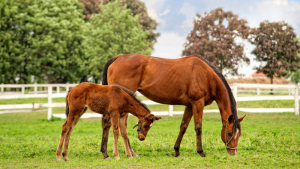Uncategorized
Lactobacillus Reuteri and the Immune System
The Immune System starts in the gut, and Lactobacillus Reuteri has a big impact!
A recent paper in dogs revealed the benefit of Lactobacillus reuteri to the immune system (8). This study showed a tend of higher antibody levels ( IgA and IgM ) in dogs fed Lactobacillus reuteri and it reminded us of the huge role that L. Reuteri plays in the development and maintenance of the immune system.
A list off what Lr contributes to the all-important role of the immune system includes; post-natal immune maturation, immune development, prevention of allergenic diseases, dendritic cell modulation, t-cell modulation, suppression of inflammation pathways, allergic airway response and counter acting genetic and dietary predisposition to cancer. In addition to the long list of contributions to the immune system, LR also contributes to the maintenance of the GI flora and removal of pathogens.
This is an intense list of complex interactions which can not be reviewed in detail in this discussion. Further reading is available in the references provided. However, these interactions can be simplified into 3 categories. 1) immune maturation 2) immune modulation to allergens 3) immune modulation to inflammation (1,2,3). Lr role immune maturation starts at birth. The newborn obtains its flora as it passes through the birth canal and suckles mothers milk. Each of these regions contain bacteria important to the gastrointestinal immune development. Studies have shown that the lack of Lr at this stage of life has been associated with childhood allergies (4). It’s important to make sure that your animals have a good supply of L. reuteri before giving birth in order to pass it along during birth. Giving your mare Equiotic Foal & Mare helps to make sure that your foal is getting a good supply of l. Reuteri. Caniotic tablets and Caniotic oil are great to give to dogs starting at 7 weeks gestation and through weaning.
Throughout development, Lr continues to modulate the inflammatory response through its interaction with immune specific cells of the gastrointestinal tract. These cells are known as dendritic cells. Lr surveys antigens (foreign proteins of the gastrointestinal tract) and presents them to the dendritic cells for the process of antibody development (5).
In addition to the above-mentioned stimulus of antibody production, Lr influences another arm of the inflammatory system, immune responsive cells, and chemical messengers (6). Modulation of Inflammatory mediators can inhibit inflammatory bowel diseases and inflammatory pathways involved in dietary and genetic predisposition to the development of breast cancer (7).
From this discussion it is clear that lactobacillus reuteri is critical to the development , maturation , response and maintenance of the immune system in all animals, including humans. L. reuteri is beneficial for both you and your pets! Supplementing with large numbers of live, species specific l. reuteri on a daily basis ensures the colonization of these all important bacteria in the GI tract. See the references for further reading and previous and future blogs regarding the significance of this critical component jog the GI microflora.
References
- Forsberg, Anna. “Lactobacillus reuteri, Infant Allergy Prevention and Childhood Immune Maturation”. Probiotics and Prebiotics in Human Nutrition and Health, edited by Venketeshwer Rao, Leticia Rao, IntechOpen, 2016. 10.5772/63120. https://www.intechopen.com/chapters/50561
- Weizman, Zvi et al. “Effect of a probiotic infant formula on infections in child care centers: comparison of two probiotic agents.” Pediatrics 115,1 (2005): 5-9. doi:10.1542/peds.2004-1815. https://pubmed.ncbi.nlm.nih.gov/15629974/
- Expertanswer (Expertsvar in Swedish). “Lactobacillus reuteri good for health, Swedish study finds.” ScienceDaily. ScienceDaily, 4 November 2010. <www.sciencedaily.com/releases/2010/11/101102131302.htm>.
- Forsythe, Paul et al. “Oral treatment with live Lactobacillus reuteri inhibits the allergic airway response in mice.” American journal of respiratory and critical care medicine 175,6 (2007): 561-9. doi:10.1164/rccm.200606-821OC. https://pubmed.ncbi.nlm.nih.gov/17204726/
- Thomas, Carissa M et al. “Histamine derived from probiotic Lactobacillus reuteri suppresses TNF via modulation of PKA and ERK signaling.” PloS one 7,2 (2012): e31951. doi:10.1371/journal.pone.0031951. https://pubmed.ncbi.nlm.nih.gov/22384111/
- Karimi, Khalil et al. “Lactobacillus reuteri-induced regulatory T cells protect against an allergic airway response in mice.” American journal of respiratory and critical care medicine 179,3 (2009): 186-93. doi:10.1164/rccm.200806-951OC. https://pubmed.ncbi.nlm.nih.gov/19029003/
- Lakritz, Jessica R et al. “Beneficial bacteria stimulate host immune cells to counteract dietary and genetic predisposition to mammary cancer in mice.” International journal of cancer 135,3 (2014): 529-40. doi:10.1002/ijc.28702. https://pubmed.ncbi.nlm.nih.gov/24382758/
- Mccoy S. Effects of Feeding Lactobacillus Reuteri X-18 on Blood Chemistry and Immune Parameters in Beagle (Canis Familiaris) puppies. https://shareok.org/bitstream/handle/11244/6607/Department%20of%20Animal%20Science_30.pdf?sequence=1&isAllowed=y

